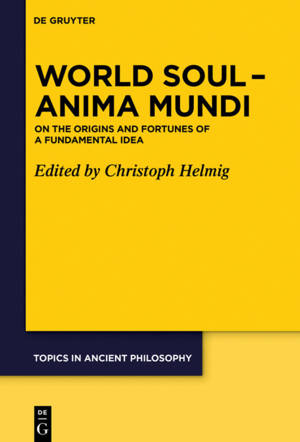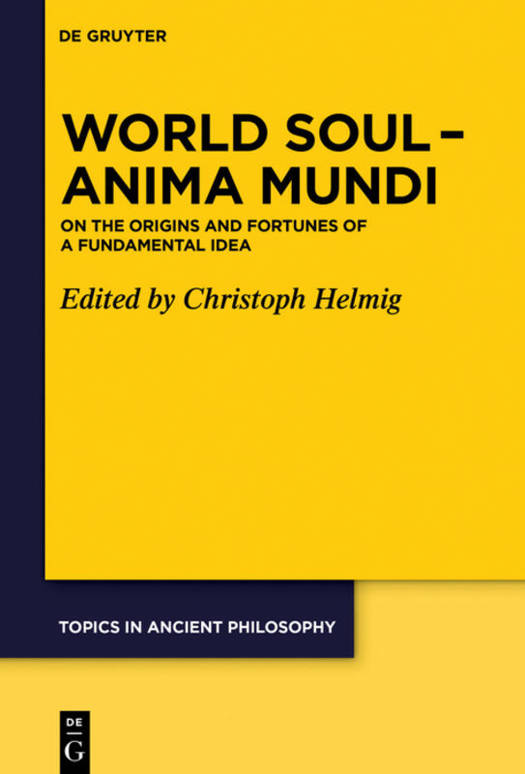
- Retrait gratuit dans votre magasin Club
- 7.000.000 titres dans notre catalogue
- Payer en toute sécurité
- Toujours un magasin près de chez vous
- Retrait gratuit dans votre magasin Club
- 7.000.000 titres dans notre catalogue
- Payer en toute sécurité
- Toujours un magasin près de chez vous
World Soul - Anima Mundi
Description
From Plato's Timaeus onwards, the world or cosmos has been conceived of as a living, rational organism. Most notably in German Idealism, philosophers still talked of a 'Weltseele' (Schelling) or 'Weltgeist' (Hegel). This volume is the first collection of essays on the origin of the notion of the world soul (anima mundi) in Antiquity and beyond. It contains 14 original contributions by specialists in the field of ancient philosophy, the Platonic tradition and the history of theology. The topics range from the 'obscure' Presocratic Heraclitus, to Plato and his ancient readers in Middle and Neoplatonism (including the Stoics), to the reception of the idea of a world soul in the history of natural science. A general introduction highlights the fundamental steps in the development of the Platonic notion throughout late Antiquity and early Christian philosophy. Accessible to Classicists, historians of philosophy, theologians and invaluable to specialists in ancient philosophy, the book provides an overview of the fascinating discussions surrounding a conception that had a long-lasting effect on the history of Western thought.
Spécifications
Parties prenantes
- Editeur:
Contenu
- Nombre de pages :
- 372
- Langue:
- Allemand
- Collection :
- Tome:
- n° 8
Caractéristiques
- EAN:
- 9783110628463
- Date de parution :
- 20-01-20
- Format:
- Livre relié
- Format numérique:
- Genaaid
- Dimensions :
- 163 mm x 234 mm
- Poids :
- 635 g






